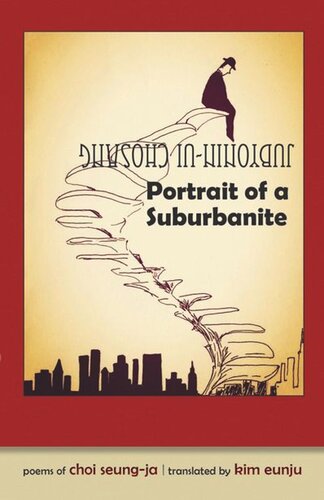

Most ebook files are in PDF format, so you can easily read them using various software such as Foxit Reader or directly on the Google Chrome browser.
Some ebook files are released by publishers in other formats such as .awz, .mobi, .epub, .fb2, etc. You may need to install specific software to read these formats on mobile/PC, such as Calibre.
Please read the tutorial at this link: https://ebookbell.com/faq
We offer FREE conversion to the popular formats you request; however, this may take some time. Therefore, right after payment, please email us, and we will try to provide the service as quickly as possible.
For some exceptional file formats or broken links (if any), please refrain from opening any disputes. Instead, email us first, and we will try to assist within a maximum of 6 hours.
EbookBell Team

4.0
56 reviewsThis volume is a translation of Choi Seung-ja's 1991 anthology titled Portrait of a Suburbanite. Published in the series of "100 Prominent Korean Poets" by Mirae Press, the poems in this volume were selected from four of Choi's previous works titled, Love of This Age (1981), Merry Diary (1984), House of Memory (1989), and the subsequently published My Tomb, Green (1993). Speaking with a fierce sense of equality and independence, Choi Seung-ja's poetry battled ossified forms of language not only on the political but also the personal front. Like her male colleagues, Choi parodied and critiqued the idol of the father, but even further, she insightfully explored irreverent content to reveal the gendered constraints of the lyric form. In particular, Choi exposed the idolatrous power of the lover, the basis of exploitation and injustice at the most intimate level. On top of their political disempowerment as citizens, the private and domestic alienation of women as daughters, lovers, and wives form a deep stratum of repression. When Choi's women personae broke this long silence of compliance nurtured by the traditional lyric and voiced themselves as exploited and traumatized, yet fearless and tenacious human beings, the shock of this transgression shook the nation. In turn it demonstrate how long and how powerfully the gender constrictions had been imposed on Korean women.